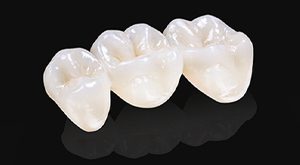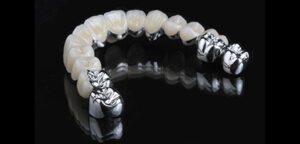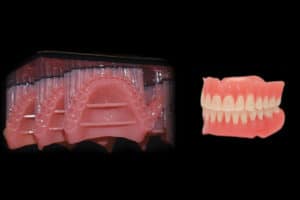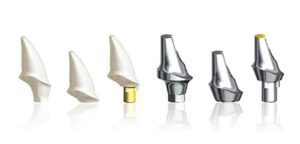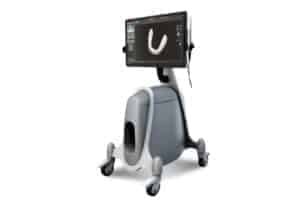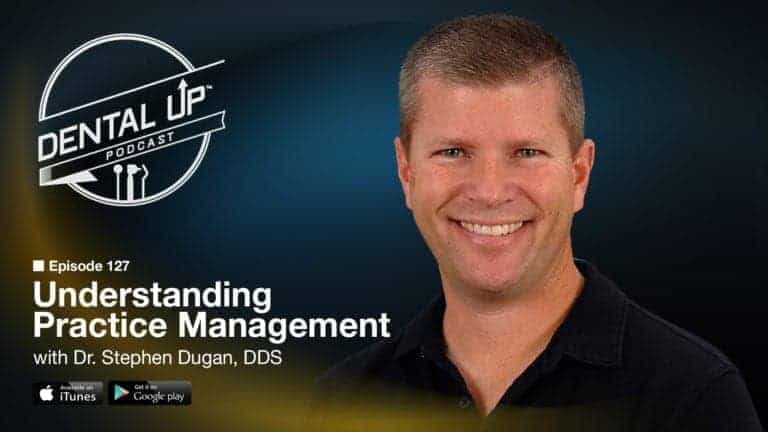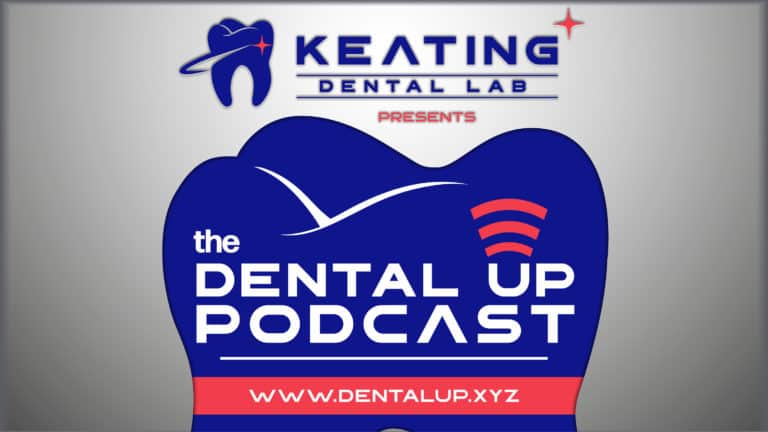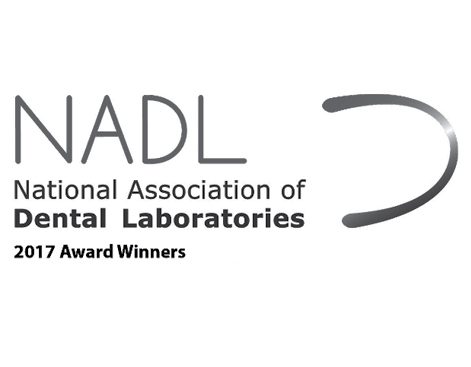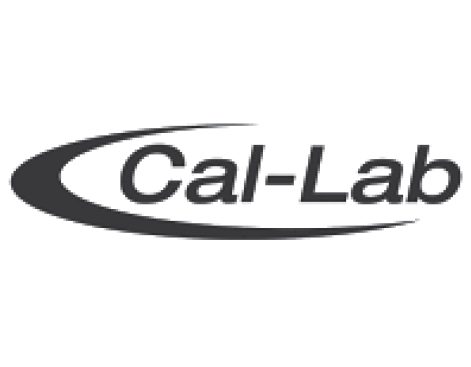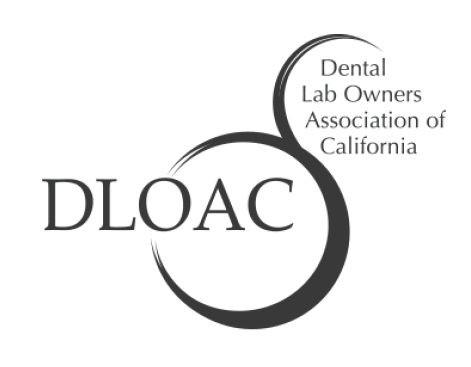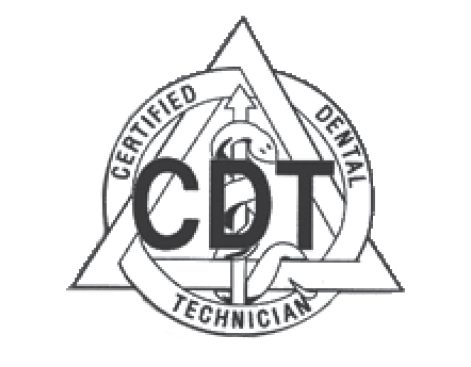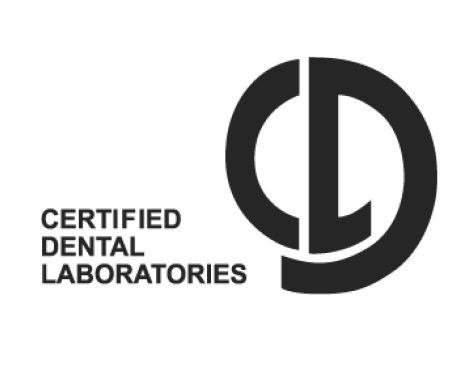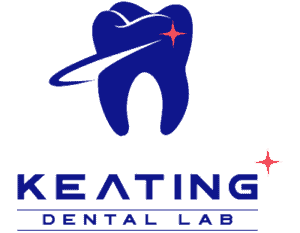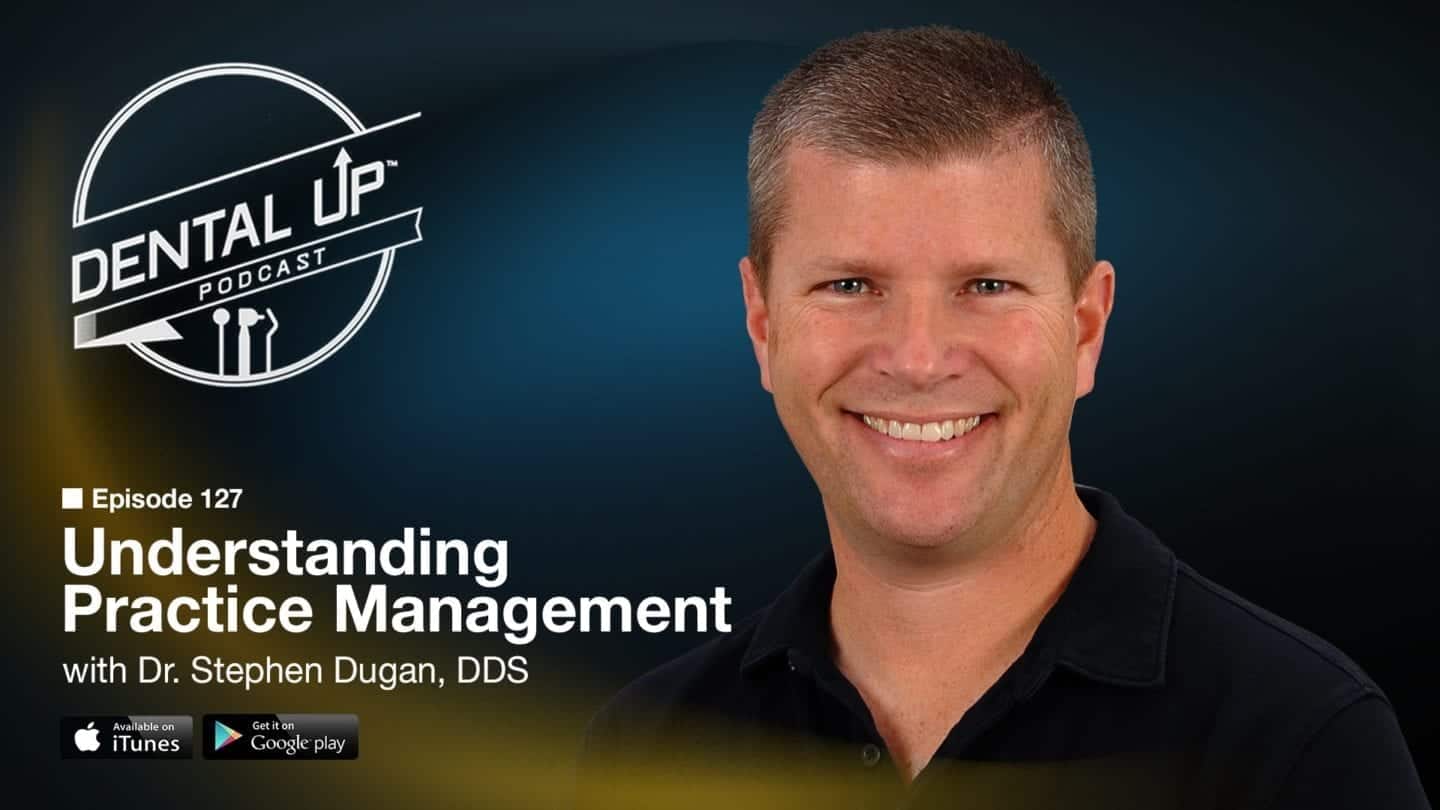
![]()
![]()
![]()
![]()
On this week’s episode of the Dental Up Podcast Dr. Stephen Dugan, DDS join us to talk about Practice Management and his methods of transitioning into a new practice. After being inspired by interest, he pursued a career in Dentistry. He served 3 years in the military and opened his first practice in 06. It was there when he first realized that there is a process to build and customize your new practice.
In this episode we talk about:
- The early inspirations that led him to pursue a career in dentistry.
- His time serving in the US Military.
- The procedures and process that he established on his first practice.
- Moving to a larger practice.
For more information and to learn more about Dr.Dugan and his Practice you can visit his website at www.duganfamilydentistry.com
Announcer: Ladies and gentlemen, this is the Dental Up podcast brought to you by Keating Dental Lab, a full service, award-winning dental laboratory. Each week, you’ll learn tips and techniques from real-world dentists, bringing you in depth interviews, motivating stories, current events, and sports.
Here’s your host, Shaun Keating.
Shaun Keating: Hey, everyone. Shaun here. Welcome to another episode of the Dental Up podcast. Our guest this week is a graduate from the University of Missouri Kansas City School of Dentistry. A United States army veteran and is a member of the Kansas Dental Association, the ADA, and the Academy of General Dentistry, practicing from Wichita, Kansas. Please welcome Doctor Steven Dugan, DDS. How’s it going, Doctor Dugan?
Dr. Dugan: Hey, going well. Thanks for having me, appreciate it.
Shaun Keating: Thank you so much, man. I know how busy you are and you got a booming dental practice, and I can’t thank you for all the work. We haven’t been together over 10 years here and you just rock and roll, baby, man. You’re doing it right out there in Kansas. That’s so cool.
Dr. Dugan: Yeah, sure trying. We give it heck.
Shaun Keating: Oh, man. That’s so cool. Well dude, I always start off talk a little bit about sports. I know you’re a Kansas guy. You like K State, college football? What sports you like out there? Or anywhere.
Dr. Dugan: Yes. So I’m a K State grad, so definitely still cheer for K State and pro sports, Kansas City Chiefs and Dallas Cowboys who I root for.
Shaun Keating: There you go. That’s a little odd. Kansas City Chiefs, and Dallas Cowboys. How’d that work? You have a little connection to Texas, do you?
Dr. Dugan: I was born in Dallas, but my parents moved to Wichita when I was six months old, so this is home, but still root for the Cowboys.
Shaun Keating: No kidding. I remember back in the day, I’m much older than you I’m sure, but Dallas was like America’s team back in the day with Roger Staubach and it’s just …
Dr. Dugan: That’s right.
Shaun Keating: It’s just Tony Dorsett, and Hollywood Henderson, and all those guys. And they were getting back into it pretty good recently, but I don’t know. They didn’t look too good the other day. I think Kansas City didn’t look that good. What happened to them? I think, I’m not sure about that, but it’s still …
Dr. Dugan: The Chiefs pulled out a win, but Dallas sure didn’t.
Shaun Keating: Yeah. I just think it’s still early, but hey, our Rams look pretty good against the Raiders. We got the Rams finally back here after all the years and I was a little worried on the first series when they went down, Oakland went down and scored, and we’re supposed to have this badass defense. And then our first series we got this superstar offense and it was three and out and we had to punt and I’m like, ruh-roh. What’s going on man?
Dr. Dugan: Yup, I understand that.
Shaun Keating: No, it’s exciting, especially too, I was just in Kansas recently. Fly into Kansas City and my friend lives in Overland Park there and it’s just beautiful out there in Kansas and Missouri area and the people are so nice and it’s just so green and what a great place, man. And talk about food and barbecue, man I tell you. I’m a eater. I love food. They’ve got good stuff.
Dr. Dugan: Yeah. They definitely have that up there. Wichita’s a nice place to be to raise a family, so it’s working well for us.
Shaun Keating: Yeah. It was weird, we had a thing in the paper how best places rated, I think medium to large cities or something in the whole United States, and the number one place to raise a family was Overland Park, Kansas and I had to call my buddy and send him a picture on my phone. I go, “Look at this.” And then our kids grew up in Irvine and my company’s in Irvine and we were number three because it’s kind of like a family community and just master planned community here in Irvine and that’s why we moved here way back in the day. So it’s kind of neat to see Overland Park rated up there and my buddy always said, he goes, “Shaun,” like 20 years ago when he moved there and he’s a dental technician also. He goes, “This kind of reminds me of Irvine. It’s just a neat little place. There’s beautiful foliage and people are real nice. Great place to raise children.” And lo and behold, look at, they’re rated number one.
So he wasn’t lying when he said that, but that’s …
Dr. Dugan: Yeah, absolutely. It’s definitely a nice place.
Shaun Keating: It’s neat. All right, well hey, let’s dental up. So tell me, Dr. Dugan, at what point, why did you get into dentistry and at what point did you think, I want to be a dentist?
Dr. Dugan: Well, it ended up, I decided the second semester at college and I have an uncle who’s, now, a retired periodontist.
Shaun Keating: Oh, okay.
Dr. Dugan: And kind of enjoyed the thought of medicine. Thought I might like that, but not necessarily to become a physician, knowing the issues that they were having with the insurance and having to go to the hospital in that aspect, so dentistry was a better fit.
I like the idea of being my own boss and thought that would work well and it has. Been enjoying it.
Shaun Keating: That’s awesome. Now tell me a little bit about your college journey. Tell me a little bit about where you went to college and maybe your undergraduate, if you could a little bit.
Dr. Dugan: Yup. Went to K State for undergrad and ended up being kind of neat. I did an opportunity to kind of observe with other dentists and Fort Riley is right near Manhattan, Kansas where K State is, and so I went out and observed at Fort Riley and then had a scholarship paying for three years of dental school in the Army and so when I was actually in the Army, I was stationed at Fort Riley in the exact same dental clinic that I’d observed in years ago.
Shaun Keating: That’s so cool.
Dr. Dugan: It’s kind of neat to come full circle.
Shaun Keating: Oh, yeah. That’s awesome. My brother did the same thing. The Navy gave him a scholarship to go to dental school and then he had to stay in the Navy. He ended up staying in for about ten years. The last two years, they put him up to go do endodontics, and so he did that, I think in Bethesda, Maryland, but what a great thing, man, serving our country. Thank you for that, your service, and everything else. I know …
Dr. Dugan: Yes, thank you.
Shaun Keating: Getting a little bit ahead, but I know you’re in the Army and you actually were over in, I think, Baghdad in some fort over there for a little bit? How was that, man? Kind of crazy being over in Baghdad? And kind of scary. I don’t think people realize what it’s like to be in the armed services and then go into war torn areas and stuff.
Dr. Dugan: Yeah, it’s definitely different. Hadn’t been to that part of the world before and it was definitely eye-opening to say the least. I was there during the winter months, though, so it was cooler. That’s their rainy season, so things got to be kind of muddy and that kind of thing, but I was only there for about four months. Went over to replace, actually, it was a buddy of mine who needed to come back for knee surgery. So I completed that unit’s tour. Four months and getting to treat the soldiers that were over there. Trying to help them get out of pain, and so that was rewarding. It was a good experience in that regard.
As far as being kind of different, not know what goes on over there, like you said, I was first over there within the first week and traveling in a convoy of four Humvees and I was in the third. There was one of those IED devices that blew up in between the third and fourth vehicle. Nobody was injured, but could feel the concussive force go through the vehicle and felt that, kind of in your chest, and thought, “Oh gosh. This just got real.”
Shaun Keating: Oh man. That’s so scary.
Dr. Dugan: That’s the closest I came to any real danger, fortunately. But yeah, that was an eye-opener, to say the least.
Shaun Keating: That’s just crazy. A lot of people take things for granted. I’m a Navy brat, myself. My dad was in the Navy 31 years and kind of went all over the US and he just … You have a respect for it, just after you see what you have to go through and just not knowing if they’re coming home and it’s just something that I’m very thankful and I wish more Americans were really thankful and more patriotic. Some are, you know, they just take things for granted and you just can’t, man. Our liberties and everything else have been fought and fought hard for to have our freedoms and some people just take it for granted a little bit.
Dr. Dugan: Yeah. That’s right. Absolutely. Absolutely, they do.
Shaun Keating: But I thank you so much for that, so thank you. Well, tell me a little bit about, so when you got out of dental school, did you start out as an associate, or did you purchase a practice? Tell me a little bit about that, if you could?
Dr. Dugan: So, out of dental school with the scholarship, I spent the first three years active duty in the Army, then came back to Wichita. Was an associate in a practice, and learned about another opportunity to purchase a practice. Things weren’t going the best, I’d say, as the associate, so looked to go elsewhere and purchased a practice in March of ’06 and built that back up. Built that practice up some and then January of ’17, had a colleague and friend who was gonna retire and I ended up buying his practice and so moved my office to this new location.
I was leasing before in the old practice and now I own the building, so that’s been nice. And I’d say more than doubled the size of the practice by making that purchase.
Shaun Keating: Oh, that’s so cool.
Dr. Dugan: It’s been working out really well.
Shaun Keating: It takes a leap of faith too, to jump from one practice to another. I thought you were gonna say, yeah, I just bought another practice, so I have two, but sometimes, it’s best just to concentrate on one and build it properly. And especially too, to go from leasing or renting to purchasing, that’s nothing but good for you. That’s gonna come back for you in the future, especially if you need to borrow on it or anything like that to help further grow your practice, or not. But that’s awesome, man. That’s the dream. Good job.
Tell me a little bit about …
Dr. Dugan: Well thanks. Yeah, it was definitely scary making that second purchase. Wondering can I handle this and am I gonna be able to make a go of this because that’s a lot of debt to incur and making those payments still.
Shaun Keating: Oh, yeah.
Dr. Dugan: But it was the best move I could’ve made.
Shaun Keating: That’s so awesome.
Dr. Dugan: And haven’t looked back since.
Shaun Keating: That’s so cool. Well, you’re crushing it, man. For sure. What about with your practice. Tell me a little bit about the layout. How many ops you got. Maybe tell me a little bit about the staff you got going.
Dr. Dugan: I have, in this building now, there are six total treatment rooms. I work out of two and I have four full-time hygienists.
Shaun Keating: Beautiful.
Dr. Dugan: So they definitely keep me hopping around. And so the four hygienists, I have two assistants, and two working the front.
Shaun Keating: No kidding. How does that work on your hygienists? Do you have them staffed different days of the week? Are you full Monday through Friday? Tell me a little bit how, because I have a few dentists that work with one or two hygienists and they stagger them a little bit, but to have four, and I’ve had quite a few guys that have three and four, but tell me how you stagger them and the workflow that you have if you could.
Dr. Dugan: We’re Monday through Thursday, 8:00 to 5:00, and three of them work that full-time every day and then the fourth one is three and a half days, actually. So she’s off Tuesday afternoons.
Shaun Keating: Okay.
Dr. Dugan: And otherwise, they’re here all the time and …
Shaun Keating: Yeah.
Dr. Dugan: You know, sometimes it gets to be a bit of a challenge getting around to the rooms to do the exams. Once in a while, we’ll look ahead and see if somebody, if a patient has had an exam already within the year, then they don’t need one, necessarily, on that particular day, so that can help free up some time for me if I’m really swamped with a procedure, then I can kind of skip a couple of those exams if the hygienist hasn’t found anything, doesn’t need me to look at something, or the patient hasn’t said, “Hey, I’d really like him to look at this,” then yeah. We can punt on an exam, and just make sure that we get them next time.
Shaun Keating: Absolutely.
Dr. Dugan: And so that can definitely help. I still make it around most of the time, but once in a while, I take advantage of that and try to keep on schedule.
Shaun Keating: Absolutely. How do you deal with practice management? Your staff, being on recalls, all that. Did you work with anyone in particular, or how did you get to know how to really work that back and front end of the practice?
Dr. Dugan: Yeah, well that’s a good question. Certainly, talked to the dentist that I bought out. He had say, two and a half hygienists and so talked to him a little bit and that was helpful. But otherwise I had started using Blatchford Solutions.
Shaun Keating: Oh, okay.
Dr. Dugan: Bill Blatchford was a practicing dentist and started this practice management company and I’ve been using them. He helped in the transition. He’s the one that really got me to look at buying this practice before I was ready because I still had the lease at the other office and I thought, you know, I need to finish out the lease before I can buy the practice.
He said, “No, you need to do it right now.”
Shaun Keating: Yeah, good for him.
Dr. Dugan: And convinced me that I’d be able to do well enough to still make that payment for the lease at the office I wasn’t even using and so that was a leap of faith there too, but he was right. But yes, they’ve been helpful in that regard in trying to structure the practice and knowing how to work. And they’re the ones that kind of taught me to look at exams. If they’ve had one recently, then I could punt and they said don’t do that every time by any means, but it can sure be helpful.
Shaun Keating: Absolutely. No definitely. And those guys are good. They’re real good for sure. Tell me a little bit about some of the procedures you like to do and what you don’t like to do in your practice. Anything you like to outsource more than others? Or do you try to MacGuyver it and kind of do everything you can in there? Tell me a little bit about that if you could.
Dr. Dugan: In that regard, it’s kind of nice being a general dentist. Can pick and choose what you like to do. Things that I like are doing crowns or having a tooth that’s broken down and being able to build it back up and save it. Somebody comes in that’s had a crack, fracture of their tooth and still being able to help them and save it. I refer out most of the molar endo these days. Just not nearly as efficient at it, so it’s a longer procedure for the patient, not much fun for either one of us. So I say to heck with that, and let the specialist do it.
Shaun Keating: Absolutely. You sleep better at night with that. It’s just …
Dr. Dugan: And then extractions. I do some of the extractions, but if it’s third molars, doing all of them, I did that in the Army and nope, I punt those and let them do it. They’re better and faster than I am and sometimes that’s good, knowing your limitations.
Shaun Keating: Absolutely.
Dr. Dugan: And/or what you enjoy doing, or not, so that you can punt on the ones that you don’t like to do and focus on those that you do enjoy.
Shaun Keating: Oh, absolutely. No, that’s why you got a kick in your step, I think and it’s just something, some guys don’t do that, man. Just do what you do good, and let the other guys do the other stuff and don’t let patients push you into, “Well, I need it done now.” Or this and that. It’s just you kind of say … I had one guy tell me, “Well, I wouldn’t even do it on my wife.”
Dr. Dugan: Right. Yeah that’s a good one.
Shaun Keating: Well if you’re not gonna do it on your wife, you’re not gonna do it on you. It’s just something. How’s it work in Wichita now? In Wichita, is there a lot of specialists that are close to you that you can? Do you work with a certain oral surgeons? Tell me a little bit about that, how that works on who you refer out and why and how you do that?
Dr. Dugan: Well, I think in Wichita, we’ve got a really good dental community. All the general dentists get along pretty well. It’s not a cutthroat type of environment. Specialists, we work well with them. Everybody’s always willing to help each other out and so referring to the specialists, we’ll call them up and describe a certain situation. They’re happy to return a call.
Shaun Keating: Beautiful.
Dr. Dugan: It’s nice to be able to just discuss a case with them. So in that regard, we work with most of the specialists in town and certainly that helps to get our patients in a little bit quicker if you’re working with several that you feel comfortable with versus just one person in particular as far as root canal specialist or somebody. So I think I have a good relationship with the specialists and that’s worked well.
Shaun Keating: That’s awesome. They take you out to lunch or anything? Got any certain ones? Like my brother, he’s always taking out some of the GPs, and some of them, I know are like, “Kevin’s not taking me out as much as he used to.” But, no, it’s just … Some places, it’s cutthroat, like here in LA in Orange County, there’s so many dentists on every corner and no one really knows each other and it’s just so big and so freaking … It’s just tough, you know? And I just hear doctors that, “Oh, I don’t want to send to him because he doesn’t refer.” And this and that. It’s just, it can be nit picky a little bit, but it sounds like you got some nice harmony in your town.
How big is Wichita, by the way?
Dr. Dugan: Wichita is about 350,000.
Shaun Keating: Oh man. That’s not …
Dr. Dugan: In town. And then probably half million when you include the surrounding communities.
Shaun Keating: That’s big. That’s huge. And again, we have one little city called Santa Ana here has 400,000 but that’s still, that’s a lot of people. So you can draw from quite a big pool. Lot of dentists in town? How many dentists you think you got surrounding that whole area?
Dr. Dugan: Man, that’s a good question. I haven’t counted lately. In that regard, there are quite a few, but still, it’s a friendly community. There are more than enough patients to go around, so we’re not fighting over each other to try to get a patient.
Shaun Keating: Good, good, good.
Dr. Dugan: And you mentioned going to lunch. There was a group, when I first came back, there was a group of … I’m on the west side of Wichita and a group of west side guys would get together. There was probably about 10 when I first got back, and over the years, that’s kind of dwindled and now there’s just myself and an orthodontist, occasionally an endodontist that get together maybe once a month or so. Used to be every week, but we’ve gotten busier and so it’s tapered off a little bit, but still like to get together as often as we can. It’s fun.
Shaun Keating: No kidding. That’s awesome. That’s neat.
So tell me a little bit about your marketing strategy. Do you do any of the social media? Do you work in the public sector? Tell me a little bit about what you do to drive patients to your practice.
Dr. Dugan: Well, one of the gals in the office does some of the social media aspect. We have a Facebook page and she’ll post things on there. But, you know, to be honest, we haven’t done a whole lot with that. When I bought this practice then, like I said, it more than doubled the size of my practice when I joined the two together, so we were definitely plenty busy and then our biggest draw is just word of mouth. The internal referrals. And that’s been really great.
I guess our second biggest is the Delta Dental website. Patients just looking to see who’s close and they find me that way and so I guess I’ll say I’ve been blessed that I don’t have to hit the marketing aspect really hard to try to drive clients in.
Shaun Keating: That’s awesome.
Dr. Dugan: Really just kind of Facebook, occasionally.
Shaun Keating: You know, I hear that by so many practices that are successful that basically it’s word of mouth where they get most of, 90% plus, where you’re getting your business from is word of mouth and it’s just your existing patients that are happy that you’re taken care of and it’s free. It’s just something that, there’s a lot of guys that will push, push, push, and market and it’s just something that, there’s nothing better than word of mouth. And it’s just the old school. It’s been around since the caveman. It’s just word of mouth, Dr. Dugan does great dentistry. Their staff is nice and cordial and we love going there. He’s a good family man and it just works.
Just kind of the golden rule. Treat people good and that’s your best marketing advice I can think you can get from anybody. Because I’ve done this a long time and I’ve seen a lot of doctors that, you know, big volume guys, small volume guys, but at the end of the day, the ones that are always busy, they’re not pushing the envelope. They might do a lot of onesie twosies, not a lot of big rehabs, but they’re solid. And when you have downturns in the economy, they survive. They’re not over their heads thinking and doing things that they probably shouldn’t be doing, but good level-headed people that are trying to do a good thing with the public sector and doing a good job.
And you’ll grow. It’ll take time. And like even too, with this practice, new practice you got going, I bet you when we do this again, say five years, ten years, it’s just gonna be such an amazing thing that in time you will grow. Don’t think about the money. Don’t worry about that. It’ll all come, but for you to bite off and go ahead and purchase like you did, and doing this in this day and age … And heck, I think you have like six children too. That’s pretty awesome.
Dr. Dugan: I do have. Yup.
Shaun Keating: That’s so cool. I come from six kids in my family. We had four boys and two girls and there’s nothing like a big family. And how many boys and girls you got working in that family of yours Dr. Dugan?
Dr. Dugan: I’ve got an even mix.
Shaun Keating: Three and three.
Dr. Dugan: So, yeah. You know, it’s kind of crazy. I never thought I’d grow up and have six kids. Everybody I knew, you got married, you had two kids and that was it. So that was what I thought was normal. Now here I am with six. They’re awesome.
Shaun Keating: That’s so cool.
Dr. Dugan: Definitely keep us busy involved in all kinds of activities, so we’re running around.
Shaun Keating: I bet.
Dr. Dugan: But it’s enjoyable.
Shaun Keating: How old are they? From what age to what age?
Dr. Dugan: So they’re 15, 13, 11, 9, 7, and 2.
Shaun Keating: Ah, dang. That’s awesome.
Dr. Dugan: Still got one in diapers.
Shaun Keating: Ah, but that two year old. Is that a boy or girl, the two year old?
Dr. Dugan: He’s a boy. Yup.
Shaun Keating: He’s gonna be the toughest one and he’s probably a little handful right now, but maybe not so much. I was the youngest boy of four, but I don’t know man. That’s so cool. What a range too.
Dr. Dugan: It’s fun. It is, yeah. They’re every two years and then I had a little bit of a lull. I had another one.
Shaun Keating: It’s time to get a couple minivans and a vasectomy, I’m thinking huh? I’m just kidding. No.
Dr. Dugan: Yeah, there’s some options there.
Shaun Keating: No, that’s awesome, dude. I remember we drove those minivans with the dual sliding doors and we only had two kids, but like you said, everyone has two and it’s like, I think it’s great. It’s tough for you now, probably a little bit, but give it another five, ten years when the kids are in their twenties and getting older. Shit, our boy, yesterday we celebrated his 34th and our other boy’s 31 and I’m 55. It’s like, dude, we did it kind of young, but it’s neat as they get older and they start having kids and then you’re a grandparent and stuff. But I just think you’re gonna have so much joy with those kids. Have a big family like that. Imagine that in 30 years you’re gonna have like 25 grandkids, probably. And you’re gonna have like three dental practices. Insane.
Kids, you’re gonna have 14 dentists in just the siblings with their kids. You never know, man. It’s gonna be Dugan Dental.
Dr. Dugan: Anything’s possible.
Shaun Keating: Dugan Dental Practice. No Dugan Dental Centers across Kansas and Missouri.
Dr. Dugan: Holy cow.
Shaun Keating: Let’s do it, man.
Dr. Dugan: Yeah, they’d be doing something.
Shaun Keating: We’re gonna be the next smile, or the big Bright Smile, or whatever some of those bigger places. You never know. If you got something that works good, you can multiply it. I’m just sitting there rambling there a little bit.
Dr. Dugan: Well, it’s possible, but I haven’t had that vision just yet.
Shaun Keating: It’ll come. It’ll come when you start seeing those colleges. The Keating boys, I told them you’re going, because we didn’t have any money back in the day, I was like, “Going to college, yeah? The only way you’re going to college, you’re gonna get a scholarship, my boys.” Right out of high school, they both came and worked for me because they didn’t get that scholarship.
Dr. Dugan: I’ve got one daughter who thinks right now that she’d like to be a dentist, so I was doing the math, I was thinking, well, I need to hang on for 15 years until you can join and, so we’ll see what happens.
Shaun Keating: I’ll cut down your price a little bit on those Bruxer Aesthetics seeing that you do so much with me and a little help out for the college fund a little bit for you because now that I hear about all these kids, we gotta help out the dude in practice a little bit.
Dr. Dugan: That’s awesome.
Shaun Keating: That’s so cool. So tell me though, with the insurance, do you do fee for service, or is it insurance driven practice. Tell me a little bit about that if you could.
Dr. Dugan: We do have, certainly some fee for service patients, but I’m contracted with Delta and Blue Cross and those are the only two that I’ve signed up for. When I was an associate, they thought it’d be good for me to sign up for the Delta PPO plan and to try to drive some of my own patients to me instead of just seeing his. So I do still have that, but I don’t know. I’d say it’s maybe 70% or 80% is insurance in the practice. It’s certainly nice when you get somebody that is a fee for service patient.
Shaun Keating: Oh, yeah. I mean, I got, I can’t believe how many practice like that, they’re all out in New York and Florida areas. I think it’s older communities or something, but they’re all just fee for service and I’m just like, how does that work. It’s like, yeah. It’s tough because I just know here in California, like Delta Dental, man. My dentists, there’s dentists around here that Delta just, they don’t pay so much on it, and I don’t know if it’s different. I think it’s different per state.
I’m not sure if it’s a national thing, or what, but they dropped it down like 20% or 30% a few years back, or something and it’s so sad when you see … Like me. I pay medical for all our employees here and it’s just something, we go through Anthem Blue Cross too, I think, and it’s just something that, you go to a doctor, you need a hysterectomy, or you need freaking, a mastectomy, or whatever, the insurance pays for it, pretty much all of it. And it’s like the dentist, you get insurance and you get 1500 bucks a year in cleanings and this and that and maybe something off on a crown prep. But it just doesn’t seem fair the way the insurances work for dental and they work for medical.
It’s so tough, but I don’t know.
Dr. Dugan: No, I definitely agree. It’s definitely a daily struggle dealing with insurance, and so, but it’s the game you gotta play if you’re gonna accept it.
Shaun Keating: Well, and what you’re doing is, I’m not the most cheapest lab out there, and I know there’s other options for you and I appreciate you using me and especially when you’re doing a lot of insurance based patients and I thank you for that because I know other guys won’t use me because, well Shaun, I can get it for 20 bucks cheaper, and that means a lot to me. This and that I understand. But at the end of the day, if I can alleviate a lot of lost chair time and a lot of less anxiety when it comes to your lab, which I do, to a lot of dental practice, for a lot of years, I think it’s important.
But thank you, man. Hats off to you for doing what you do for your patients because they’re getting some of the best dental work out there available.
Dr. Dugan: Yeah, well you’re work has been really good. The restorations coming back, they’ve just been great and so thank you for all of that because you’re right. That does save chair time. You could go with somebody cheaper, but if you end up spending more time, or remakes, or what have you, then well, you’ve lost in the end anyway.
Shaun Keating: Absolutely.
Dr. Dugan: Restorations have really been great.
Shaun Keating: That’s so awesome, dude. Thank you for that, man. So what do you do for continuing education? Do you do stuff online, or do you go to many dental conventions? Tell me a little bit about that if you could.
Dr. Dugan: Well, I do the occasional convention with, some of the specialists in town have been sponsoring some local. Continuing education will bring in somebody. A national type of speaker and so fortunately that I don’t have to go very far. Some I’ll do online occasionally as needed, but with the kids, it’s a little bit harder to get away and if I can stay local, then I like to do that.
Shaun Keating: Absolutely. Do you do anything, have you done anything on implants? You thinking about sinking implants. Are you just gonna restore them? What are you thinking you want to do in the future? Or what do you think you want to work on? Anything in particular, technique wise?
Dr. Dugan: With implants, I’ve thought about it in the past. Right now, just kind of in a good spot with doing what I’m doing. Restoring them. I don’t know. I like to not say never to anything, but right now, it’s not on my radar, really to get into placing them. The draw, or the appeal, I guess would be being able to keep it in house and take care of the patient from start to finish and maybe being able to save them a little bit of money versus going to the specialist and me, but it’s just working well.
Shaun Keating: No, don’t mess that up.
Dr. Dugan: Haven’t decided to drop to books.
Shaun Keating: I know if I was in that, I’d be the same way. I’d just do what I like to do, and some guys just get into those surgeries and sinking implants, but dude, if you’ve seen all the implants I’ve seen in all my career, I would be the first one to say don’t do them unless you’re really good and you’ve got the skills and you got the time to really get it down and learn it right because things can go awry. And it’s not the end of the day if you had to put these things to sleep. You just got to cover them up and try to find some new bone area, but there’s a lot to that. Screwing that stuff in a person’s jaw. And it’s just … I don’t know. I see a lot of guys, they’ll go take a weekend course and they’re coming back on Monday pulling back flap and sinking this stuff in with a ratchet.
I don’t know. I’m a little sissy boy when it comes to that kind of stuff. I just, I would do what I do best. And then get the training if you want to do something, but again, at the end of the day, you could just, if it’s a money thing, I see that in one way, but I don’t think you’re gonna help be saving a whole lot. You’re gonna be stressing yourself a little bit and at night, you’re gonna be thinking a little bit more about Mrs. Jones. If that thing, it’s going out to left field. I got that off angle a little bit. I should’ve used a surgical stent or something instead of just free-handing it.
Especially, too when you start doing sinus lifts and all that. I got guys doing that and that’s just, you got a big wave of those, man, or something. But that stuff, I would do what I do best, unless I’m gonna specialize in something. If I’m gonna do an endo, or I’m gonna be an oral surgeon and do this stuff, then I don’t know. I just think there’s a happy medium of practicing good, gentle dentistry with a nice staff that you got that’s been with you for a while. It can be really predictable, and you could sleep well, have a good life, work three or four days, and make a good living, and just don’t push those limits thinking, oh, I gotta do this. I gotta do that.
Do what you feel best and if you want to get out there and educate yourself more, take you’re time with it, and then take baby steps if you’re gonna get into something new.
Dr. Dugan: Sure, yeah. And with implants, there are a lot of ways for things to go sideways. So you’re right. Some guys will do a weekend course and that might be great for them. I’m not one of those guys. I would need, definitely more hands on and more extensive training on it and there again, just not one to take the time away from the family and have that added expense right now.
Shaun Keating: Oh, absolutely.
Dr. Dugan: Maybe some day. We’ll see.
Shaun Keating: Yeah. Oh, heck yeah. You’re still young, man. You’re just a puppy. You still got many years to go in this. So what’s one of the late … So you got your practice now, new practice. What’s some of the latest equipment that you’ve purchased? The latest piece of equipment that you’ve purchased.
Dr. Dugan: Well, I’d say I did purchase the Cerec several years ago. It was probably five and a half years ago, now I’d say. So it’s just paid off, so that’s kind of nice. Then after …
Shaun Keating: Is that collecting dust in the back room? Is that collecting some dust, or you still using it now and then?
Dr. Dugan: Probably more dust than anything, yes.
Shaun Keating: I got one too.
Dr. Dugan: Before I made the move, I was still at the other practice, I was doing mostly Cerecs and it was working just fine. Just more time consuming. When I made the move over to this practice, the flow of everything in the office, it’s just worked really well for me to be able to jump in and prep a tooth and then turn it over the the assistant.
Shaun Keating: Absolutely.
Dr. Dugan: And in truth, as I’ve said, you’ve made it very nice and easy for me when the crowns come back that the assistant makes sure that it fits and usually very little adjustment if any, so I come in and cement it on and I’m off and running again.
Shaun Keating: That’s so cool.
Dr. Dugan: That flow has been really good in that regard. We’re able to do more crowns in a day than I was able to do with the Cerec. Some guys are probably better with time management and using a Cerec more efficiently than what I was, but I’ve been doing more of the conventional lab crowns since I made the move over.
Shaun Keating: Well, we love that.
Dr. Dugan: It’s just working well. So there again, I don’t want to go back.
Shaun Keating: No, I know. Hey, it’s a great thing the Cerec. It really is in certain areas, but what can you see? Like three or four patients maybe at a couple hours a piece? Or hour and a half, two hours, depending on how fast you can get it. I guess you can bounce from room to room and get, maybe some more in, but I don’t know. By the time everything’s said and done, by the time you prep it and have that mill working out there with that one, single burr trying to do that and then you’re glazing it and putting secondary anatomy, it’s a couple hours in, isn’t it?
Dr. Dugan: Well yeah. Some guys are really able to be efficient with it and get the time down. We were always scheduling about two hours. Sometimes we’d get done a little over hour and a half, but that was more rare. Just for me, it was always about a two hour kind of deal, and now, we’re scheduling crown for an hour and I’m in there ten minutes or something.
Shaun Keating: Heck yeah.
Dr. Dugan: Numb first, and then go in and prep, and then I’m out. Like we said, we weren’t able to be efficient enough to get that many crowns in a day, and so using the Cerec. It’s cool technology. I do like it, and we’ll do the occasional sedation, have nurse anesthetist come in and sedate somebody, and that can be a neat use of it there. To be able to get it done while they’re sedated and while you do other work as well. And they wake up and it’s all done.
Shaun Keating: No kidding. Well, hey, it’s there. And certain situation might need an onlay, an inlay, or something like that and you got the time, take the dust off it and get out there and do yourself a Cerec, but I love it when you do those indirects with me, that’s for sure.
Dr. Dugan: Yeah, I imagine so.
Shaun Keating: What are your thoughts on other new technology out there like the impression scanners. You think you might ever do something like that with … You know, I got Cerec guys that actually send me CNs too, but more so than not, it’s a lot of the three shapes and true depths and some of the other ones out there. The iTeros and stuff, but pretty amazing. And pretty fast. Scan it real quick. Have your girls temp them, and get them on out. I love it. We’re getting quite a bit of scans that are just freaking unbelievable where I can do a modulus, even, and they’re dropping right in. It just saves so much time. Like you can scan it right there, I’m getting it here instantly and then it’s like I’m done by night time almost. I can send it to you the next day, or we’re usually doing about two days, two, three days total.
Dr. Dugan: Oh, wow. That’s cool.
Shaun Keating: Yeah. I like it. Get people all those temps faster and you have downtime. I get a lot of doctors that, “Shaun, your cases get back to me so fast that we have our staff always looking when they get back because we can call patients in quicker and just have them come in. Your crowns drop in in five minutes or less, Shaun.” We’re always seeing like, we got cases back already. Let’s call Ms. Smith, let’s call Ms. Jones, and get them back in quicker. Because I think a lot of dentists get paid when it’s final crown seat. Not when you prep it. Or who knows? Some get paid down the line with insurance.
But I just think guys, people in temporaries, man, teeth like to move more than we think and a lot of times, these patients … Some of the staff, some of the assistants and stuff that are doing the temps, sometimes, they like to take those crowns out, the temps out just a little bit too much out of occlusion and superuption happens, sometimes by the time the patient’s out of the chair. Might be a day or two, but what’s in the mouth and what’s on my models are different. So broad interproximal contacts and nice couple point, three point cuffs, occlusion if you can keep it in there. That’s so important because to get that chair time down, it’s a two way street. The staff’s got to be doing it on your end, and we got to do it on our end and we get a pretty good success rate when we’re doing it together.
But obviously you guys got it down because your crown’s dropping in, but sometimes, don’t take those temps out of occlusion, man. Don’t make them all happy. I want to almost feel like a little lightning rod when they’re biting on it, so they don’t bite on it over there, and then get them back in a week. Don’t get them back in three weeks. That’s why we do everything in five days or less here. Because we want to get it back to you, so you can get … The success rate moves up so much more, the quicker we can get it back in the mouth, and just.
Dr. Dugan: Oh, sure. Absolutely. And it’s been working really well, so that’s been great.
Shaun Keating: What do you do when you’re not working? What do you like to do to, obviously I know you got a lot of things with your family, but what do you personally like to do to make yourself feel good?
Dr. Dugan: You know, occasionally get out and golf. Like to do that when I can. It’s more time consuming though, so again time away from the kids makes it harder. But I’ve been playing racquetball in the mornings.[crosstalk 00:41:05]
Shaun Keating: Dang, that’s tough.
Dr. Dugan: Yeah, that’s been a lot of fun, picking that back up after ten years away from it. I’ve been playing most mornings during the week and it’s been a lot of fun taking out some aggression on that little ball.
Shaun Keating: That’s such a trip. I did that way back in high school and you have to run your ass everywhere. You got those little gloves you got to put on, right.
Dr. Dugan: Yeah, oh yeah.
Shaun Keating: The little padded gloves with the fingers. Like no fingers on them. They’re like half-finger gloves. That’s bad, man. Using all three walls, getting it down low. Get it low.
Dr. Dugan: Yup. It’s a good sport. It’s a lot of fun. Pretty quick moving.
Shaun Keating: Oh, no. I was thinking hand. Racquetball, you just got your racquet, right?
Dr. Dugan: Yeah.
Shaun Keating: But you’re …
Dr. Dugan: Yeah. Play indoors. You can play outdoor and it’s three walls.
Shaun Keating: Yeah. I was thinking of handball. Where you have the glove pads where you smack it. But racquetball, yeah. So you’re doing racquetball, or handball?
Dr. Dugan: Racquetball.
Shaun Keating: Racquetball.
Dr. Dugan: I haven’t tried handball. I think I’d prefer having the racquet in my hands.
Shaun Keating: I tried that handball back in the day. That’s harder than heck. But racquetball, that’s where you try to nail it down like a couple inches off the bottom so the guy can’t get to it right? Just smack it.
Dr. Dugan: That’s right, yup. Have it hit twice before he can hit it, to get it.
Shaun Keating: There’s the greatest show, my favorite show, and I’m starting to kind of look like that guy, Doug Heffernan, it’s called King of Queens.
Dr. Dugan: Okay.
Shaun Keating: Remember that show, King of Queens?
Dr. Dugan: Yes.
Shaun Keating: There’s a show where he’s playing racquetball with his buddy Deacon, and he’s kind of overweight and he just is going to town and doing all the stuff and all of a sudden just, rawr, after about 20 minutes, he’s just yacking on the court because it takes so much energy out of you. But I love that show. That’s a great one, on the racquetball there.
Dr. Dugan: The one I remember is John Candy in Splash. Racquetball.
Shaun Keating: I think I remember that too. God rest his soul. He left us too early too.
What piece of advice would you like to give to some of these newer dentists starting off? Dos and don’ts and maybe what you should be doing and maybe shouldn’t be doing. Tell me a little bit what you think about some advice for some newer dentists starting off.
Dr. Dugan: I think just being honest with people. Tell them what you see and what your recommendations are. And treat people like you would your own family members. Don’t get caught into doing something just because it works good for you. If it’s a profitable procedure or something. Just be honest with people and it’ll pay dividends.
Shaun Keating: Absolutely. Words of wisdom there, baby. That’s awesome, Dr. Dugan. I think we’re gonna end it on that. I can’t thank you enough for your time, man. It went by quick.
Dr. Dugan: It did, indeed.
Shaun Keating: But thank you for taking the time. Take care of those children. And hey, anything you need here from us, we’re here for you and I can’t thank you enough for everything. You know, if you’re ever out this way, we’d love to have you by the lab, and heck, we’ll give you a little paper and write that thing off on that great lecture you gave us, for your tax accountant. And then we can send you over to Disneyland with all those darn kids.
Dr. Dugan: Heck yeah. That’d be awesome.
Shaun Keating: Oh, man. We’ll hook you up and we’ll take you out. I know you like to fish a little bit too. We’ll take you out on a boat. And we get on the fish, we just got a big old 208 pound bluefin tuna last week.
Dr. Dugan: Holy cow.
Shaun Keating: And the dorado are going wild here off the coast here. Water’s up like 73, so the dorado is like the mahi mahi, they’re like the gold and yellow. They’re fun to catch and they jump out of the water. But we took one of our dentists out. She’s from Pennsylvania, with her son, and they got on 15 dorados in one little three hour session and there’s a lot of fish, man.
Dr. Dugan: That’s awesome.
Shaun Keating: Anytime.
Dr. Dugan: We’ve got a little pond out back of the house right now and we go out there most days and go fishing.
Shaun Keating: Beautiful.
Dr. Dugan: There’s some perch, crappie, and large mouth bass. But nothing as large as what you’re talking about. That’s crazy.
Shaun Keating: No, but hey, for about eight months out of the year, all we do is we have these, they’re called calico bass, and they’re just two to three pounds. But sometimes you’ll get these five to seven pounders and then we get the sand bass. So we get sand bass and calico bass and they’re smaller, but we just use light tackle and I love it. I got these small, little poles with light tackle and it just fights. Looks like you’re fighting a 100 pounder with your pole and I love it. You just do it out the [crosstalk 00:45:53]
Dr. Dugan: That is cool. I’d love to do that. It’s great.
Shaun Keating: Oh, man. Get out there and, you’d love it. We got a gyro on the boat too. It’s in the belly of the beast, and it kind of holds the boat stable out there and kind of a neat thing. It’s called a Sea Keeper. So I’m not a real big, I get a little wishy washy out in that water, so I got this Sea Keeper gyro and it helps me a lot to be able to stay out there on anchor three or four hours not even feeling it. It’s just kind of a cool thing to have.
Dr. Dugan: Yeah, that’s awesome.
Shaun Keating: But definitely with that family, you’re welcome here, man. We’ll hook you up for sure. And all the years.
Dr. Dugan: Well, appreciate it.
Shaun Keating: Well, hey Dr. Dugan. Thanks again, dude. And man, god bless you and your family and again, anything we can do here, just let us know, and again, thank you for coming on our podcast today.
Dr. Dugan: Yeah. Absolutely. Thanks for having me.
Shaun Keating: All right, Dr. Dugan. We’ll see you later buddy.
Dr. Dugan: Yup. Take care.
Shaun Keating: All right. Bye bye.
Announcer: Thanks for joining us on the Dental Up podcast show this week. Make sure to follow us on Facebook, Instagram, and Twitter, or search the Dental Up podcast on iTunes for our weekly feed. Don’t forget to visit keatingdentallab.com/promo for exclusive offers. Keating Dental Lab is a full service dental laboratory and we’re nationwide. We’d love for you to send us a case so we can show you the Keating difference. If you dig what you heard, please leave a review on iTunes and we’ll be back next week.

